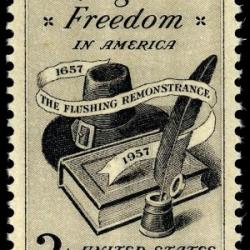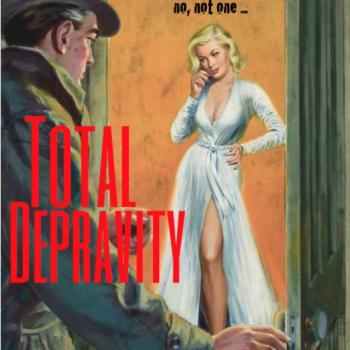In 1969, a small mission hospital in Tennessee burned down and all of its records were lost. As a result my ex-wife, who was born in that hospital, did not have a birth certificate until she was 23 years old.
This created an unforeseen problem at St. Albans (Episcopal) Church, where our wedding date was fast approaching in the summer of 1991. It seems that while it is quite possible to be born without a birth certificate, you need one in order to get a marriage license. And without a marriage license, Father Bert said, he could not perform the wedding.
Father Bert's position had a certain Anglican logic. This was a tradition, after all, created by a King's assertion of dominion over ecclesiastical authorities, specifically over the matter of marriage.
But to my Baptist — and therefore more American — sensibilities, this logic was infuriating. Marriage was a sacrament, Father Bert insisted, yet he was unwilling and unable as a priest of the church to administer that sacrament without the proper paperwork from a low-level functionary at the county courthouse.
How is it, I asked, that we were permitted to receive the Eucharist each Sunday without a notarized certificate from the clerks in West Chester?
My proposed solution was inconceivable for Father Bert. If we can't get the license by the wedding date, I suggested, then just perform the church wedding and we'll take care of the county paperwork later, when we get back from the honeymoon. That stuff's just for tax purposes anyway, and we don't have to file our taxes for another seven months.
This Baptist logic fell on deaf ears in the Episcopalian church. Without a valid marriage license duly notarized by the county clerk, the good priest insisted, our honeymoon would be fornication. Along with the notary's stamp, that clerk apparently also held the keys of St. Peter with authority over licenses, deeds, sins, sacraments and monthly parking permits.
The county bureaucrats eventually came through. We got the birth certificate and consequently the marriage license in time for the wedding day and this Baptist duly, if unwisely, received the Episcopalian sacrament of marriage.
I was still bothered by the church's abdication of its religious authority and its subservience to the state on this matter, so I asked Father Bert, as a compromise, to omit one phrase from the ceremony's conclusion: "and by the power invested in me by the Commonwealth of Pennsylvania." After all, I said, if he declares us married "in the name of the Father, the Son and the Holy Spirit," then what does Harrisburg really have to add to that? And, I pointed out, the Commonwealth hadn't really "invested" him with any such powers. It retained those powers for itself, as evidenced by the many hours I had spent in line at the county courthouse over the previous weeks.
Father Bert didn't see that one my way either. The phrase stayed in.
A few years later the matter was settled by that same county clerk, who was the sole and sufficient authority for dissolving that marriage. "What God has joined together" does not, in Episcopalian eyes at least, withstand the Almighty notary's stamp of the clerk of Chester County.
("Too young" is overly simple, and perhaps overly charitable, as an explanation for the longer story I'm not telling here. But let it suffice.)
The point of all this personal history is that the distinction between civil and ecclesiastical understandings of marriage is vitally important. The two are complementary, and often overlap, but they are not identical.
When these two, distinct ideas are confused or conflated we encounter the same problems that arise whenever we fail to keep church and state separate. That failure is bad for the state and disastrous for the church and for whoever does not subscribe with patriotic devotion and devout patriotism to whatever becomes the official civil religion.
More on this later, particularly on how I think this relates to the question of same-sex marriage and the murky, unhelpful language that clouds much of that debate.












